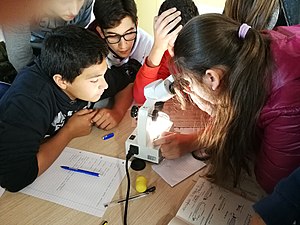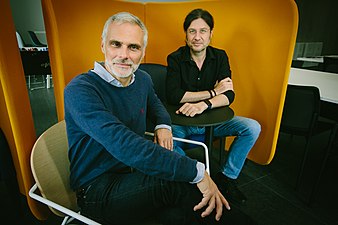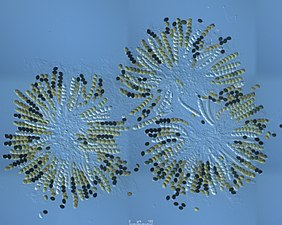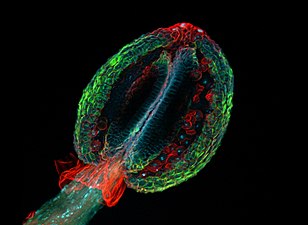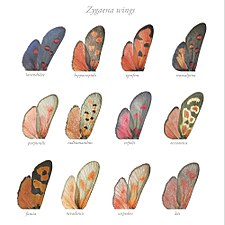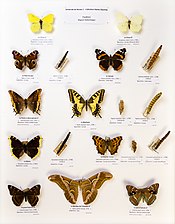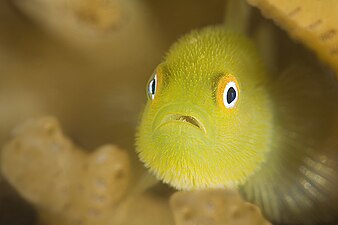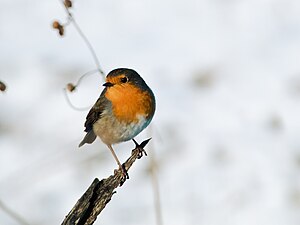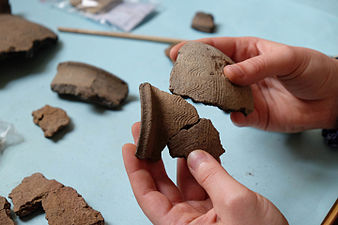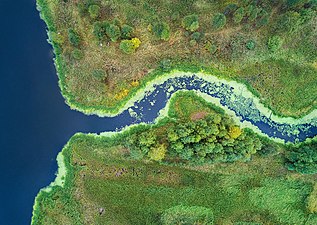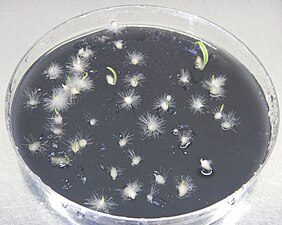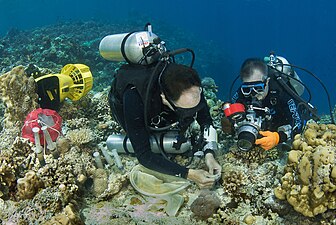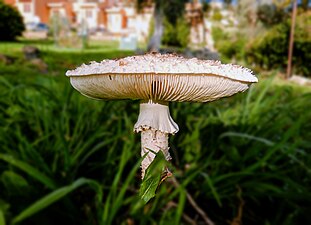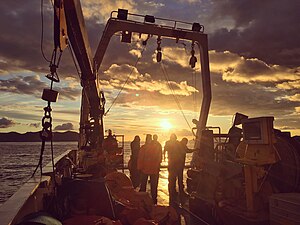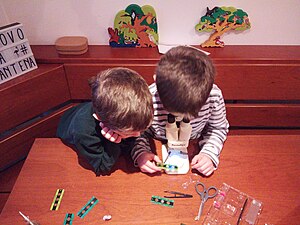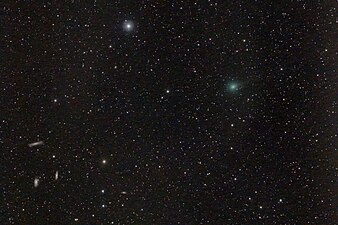Commons:Wiki Science Competition 2023
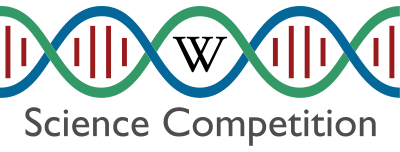 organized by the global Wikimedia community with the support of the Wikimedia Estonia and Wikimedia Switzerland. It is an evolution of the previous European competition Upload period: November – December 2023 Check the main website or the page of your specific country for more information
|
National competitions[edit]
All of the upload forms can be accessed from here. An international category is also provided for countries without a specific category, transnational institutions or for files uploaded after local deadlines.
Some countries have specific national juries. Click on your country in the list for more information in your main language.
- Americas
 AR – Argentina (Campaign:wsc-ar)
AR – Argentina (Campaign:wsc-ar) US – United States (Campaign:wsc-us)
US – United States (Campaign:wsc-us)
- Africa
 NG – Nigeria (Campaign:wsc-ng)
NG – Nigeria (Campaign:wsc-ng) ZA – South Africa (Campaign:wsc-za)
ZA – South Africa (Campaign:wsc-za)
- Asia–Pacific
 ID – Indonesia (Campaign:wsc-id)
ID – Indonesia (Campaign:wsc-id) MY – Malaysia (Campaign:wsc-my)
MY – Malaysia (Campaign:wsc-my) TH – Thailand (Campaign:wsc-th)
TH – Thailand (Campaign:wsc-th)
- Europe
 CH – Switzerland (Campaign:wsc-ch)
CH – Switzerland (Campaign:wsc-ch) EE – Estonia (Campaign:wsc-ee)
EE – Estonia (Campaign:wsc-ee) ES – Spain (Campaign:wsc-es)
ES – Spain (Campaign:wsc-es) FI – Finland (Campaign:wsc-fi)
FI – Finland (Campaign:wsc-fi) FR – France (Campaign:wsc-fr)
FR – France (Campaign:wsc-fr) IE – Ireland (Campaign:wsc-ie)
IE – Ireland (Campaign:wsc-ie) IT – Italy (Campaign:wsc-it)
IT – Italy (Campaign:wsc-it) MK – Macedonia (Campaign:wsc-mk)
MK – Macedonia (Campaign:wsc-mk) PL – Poland (Campaign:wsc-pl)
PL – Poland (Campaign:wsc-pl) RU – Russia (occurred in April-May 2023)
RU – Russia (occurred in April-May 2023) UA – Ukraine (Campaign:espc-ua)
UA – Ukraine (Campaign:espc-ua)
- People from other countries can use the international upload form – Campaign:wsc-int.
History[edit]
This competition originally started as a national competition and it was first organized in Estonia. In 2015, the contest was expanded to all of Europe and resulted in almost 10,000 freely licensed images attracting over 2,200 contesters. The 2017 edition was the first international one and saw an upload of more than 12000 files.
This year the event is organized globally for the 4th time.
How to participate[edit]
Create your account[edit]
If you don't have one yet, you can create a global account that will give you a specific username on all Wikimedia platforms (including Wikimedia Commons) when you log in.
Please notice that as a newly registered user you need to wait at least four days before uploading a video file, while images can be uploaded right after the registration.
Check the rules[edit]
The main rules are listed on the Competition website. Here we provide a brief summary.
Categories[edit]
In the national and international competition there are seven distinct categories: people in science, microscopy images, non-photographic media, image sets, nature, space and astronomy and a general category.
We provide some examples from all around the world.
People in Science[edit]
Scientists in their natural habitat.
-
Lecturer Vadim Evgenyevich Privalov presents material of electrostatics for first-year students of the Faculty of Radiophysics of Peter the Great St. Petersburg Polytechnic University. (Dan5265).
-
Teaching biology at school: classification of Diptera to assess the quality of waters in the irrigation canals of rice paddies of Vercelli (Monica Girelli).
-
Inspecting the SuperDARN radar antenna installed at the Concordia research station, Antarctica (Paride Legovini).
-
Reserachers at Istituto Dalle Molle di Studi sull’Intelligenza Artificiale
Microscopy images[edit]
Optical, electron, and scanning probe microscopy images all fall under this category.
-
Linear arrangement of ascospores in the asci of the fungus Sordaria macrospora (Aurora Storlazzi).
-
False-color SEM image of a suspended nano-LC resonator (Alessandro Pitanti)
-
Confocal laser scanning fluorescence micrograph of thale cress anther (part of stamen), (Heiti Paves)
-
10 𝝻m heart-shaped sample under scanning election microscopy (Yating Zhang)
Non-photographic media[edit]
Audio and video files, computer-generated imagery.
-
Caenorhabditis elegans (Heiti Paves)
-
Property of high-temperature superconducting ceramics YBCO, an alloy of oxides of yttrium, barium and copper in proportions (Maxim Bilovitskiy)
-
Diagram of human eye (Chabacano)
-
On-scale simulated reconstitution of the changes in cell shape (in red) and nucleoid structure (in green), occurring during the D. radiodurans cell cycle, illustrating the tight coordination of nucleoid rearrangements with septal growth (Kevin Floc'h)
Image sets[edit]
Thematically linked images, that can be viewed as one set. Image set could be made up from up to 10 separate images. In the last case, images titles must be similar to each other (they could be named using a progressive pattern such as “Name 1.jpg”, “Name 2.jpg” etc).
-
Morphology of Zygaena (Lepidoptera; Zygaenidae; Zygaena; Fabricius 1775) wings (Francisco Martinez Clavel)
-
Corona Discharge (MrJanCroatian)
-
University of Rennes 1 - Charles Oberthür's Lepidoptera collections - holarctic ecozone (EdouardHue & VIGNERON)
-
Seeds with elaiosomes (Hans Stuessi)
Wildlife & nature[edit]
Organisms who grow or live wild in an area. Macro photography also falls under this category. Some pictures in cages if scientifically relevant might be accepted.
-
Halyomorpha Halys neanides on fig leaf (Ezio Sacchi)
-
Paragobiodon xanthosoma hiding into hard coral (Fabio Strazzi)
-
Thomisus onustus on flower, inject poison into its prey (User:Termauri)
-
Erithacus rubecula in snowy winter landscape (Samuel Tobler)
Space and astronomy[edit]
It's the most recent category created starting from the 2021 edition (previously such files were put under "general")
-
Misure Lidar da un'installazione nel Dome C, Antartide (Paride Legovini)
-
image of the rose-coloured star forming region Messier 17 was captured by the Wide Field Imager on the MPG/ESO 2.2-metre telescope at ESO’s La Silla Observatory in Chile (European Southern Observatory)
-
Emission-line filtered image of the Carina Nebula, photographed using a modified version of what is known as the Hubble palette
General category[edit]
Everything else goes into this category, from archaeology to thermodynamics and from medicine to vulcanology.
-
Archaeologist from Chodlik Archaeological Mission of the Institute of Archaeology and Ethnology Polish Academy of Sciences working with archaeological finds from early medieval burials discovered in Chodlik (Archeologia.chodlik)
-
figurative decoration of the "Glass" or "Cup" "of the Warriors of Archena" and is created through a special image treatment process.
-
Aerial view of the tributary of the Chusovaya river, Sverdlovsk region
-
Orchid conservation achieved by ex situ propagation
Special categories[edit]
Over the years, additional categories have been suggested by international sponsors. This is an additional assessment, so uploaded files must be placed in the usual competition categories; the organisers and judges will then sort them into these categories, if confirmed.
Marine Sciences[edit]
A special prize for images dedicated to scientific knowledge of the oceans. This 'Marine Science' category, promoted and supported by the BlueNIGHTs project, is added for the first time this year to the other seven standard categories common to all national Wiki Science Competitions.
-
Scientific polar diver near the French scientific Dumont d'Urville base in Antarctica, photographed inside an ice tube, drilled using oil drilling techniques to allow researchers access to water. (Erwan Amice)
-
Marine biologists studying the coral reef in Indonesia (Bird's Head Seascap)
-
Specimen of Sternaspis scutata (Drennan, R., Wiklund, H., Rouse, G.W., Georgieva, M.N., Wu, X.-W., Kobayashi, G., Yoshino, K., Glover, A.G.)
-
Mobile echo sounder placed in a car's inner tube (Markus Bärlocher)
-
Archaeological excavations of a Middle Paleolithic site carried out by a team of researchers from the University of Siena. The site is only accessible by sea, reached by boat. Winner of the General category in 2019 (Stefano Ricci Cortili)
-
Mimicry of a specimen of Bathysolea profundicola (Diego Delso)
-
Apolemia uvaria and sub in the Secche di Tor Paterno Marine Protected Natural Area (Filippo Fratini)
Uploaded files[edit]
Do you need some idea? Do you want see how it's going? You can take a closer look to all files sorted by theme or country, in this category or this category (2023). You can find the combine metrics on this page.
For a quick glance, an informal selection of every week of the 2023 edition is given here.
2023-05  [edit]
[edit]
2023-11-01[edit]
2023-11-08[edit]
2023-11-15[edit]
2023-11-22[edit]
2023-11-29[edit]
2023-12-06[edit]
2023-12-13[edit]
2023-12-20[edit]
2023-12-27[edit]
Sitenotices[edit]
Central notices can be suggested at this page.
Social networks[edit]
Hashtags: #WikiScience #WikiScienceCompetition #WSC2023 #WikiScienceCompetition2023
![]() Science&Wiki
Science&Wiki
![]() Science&Wiki
Science&Wiki
![]() Science&Wiki
Science&Wiki
![]() Wiki Science Competition
Wiki Science Competition
![]() Science&Wiki
Science&Wiki
Press and blogs[edit]
A list of news published on line, ordered by date, in various languages is provided at this page.
International Jury[edit]
It is listed on the website.

